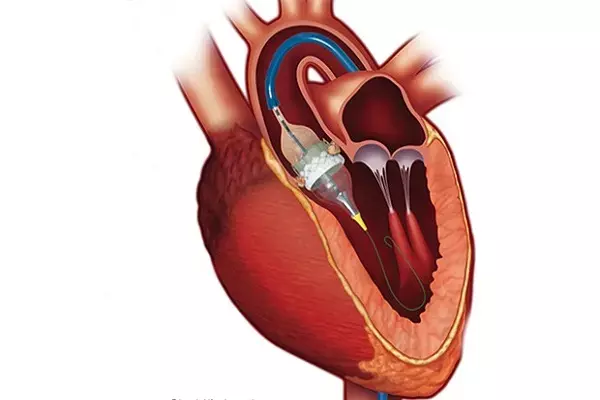- Home
- Medical news & Guidelines
- Anesthesiology
- Cardiology and CTVS
- Critical Care
- Dentistry
- Dermatology
- Diabetes and Endocrinology
- ENT
- Gastroenterology
- Medicine
- Nephrology
- Neurology
- Obstretics-Gynaecology
- Oncology
- Ophthalmology
- Orthopaedics
- Pediatrics-Neonatology
- Psychiatry
- Pulmonology
- Radiology
- Surgery
- Urology
- Laboratory Medicine
- Diet
- Nursing
- Paramedical
- Physiotherapy
- Health news
- Fact Check
- Bone Health Fact Check
- Brain Health Fact Check
- Cancer Related Fact Check
- Child Care Fact Check
- Dental and oral health fact check
- Diabetes and metabolic health fact check
- Diet and Nutrition Fact Check
- Eye and ENT Care Fact Check
- Fitness fact check
- Gut health fact check
- Heart health fact check
- Kidney health fact check
- Medical education fact check
- Men's health fact check
- Respiratory fact check
- Skin and hair care fact check
- Vaccine and Immunization fact check
- Women's health fact check
- AYUSH
- State News
- Andaman and Nicobar Islands
- Andhra Pradesh
- Arunachal Pradesh
- Assam
- Bihar
- Chandigarh
- Chattisgarh
- Dadra and Nagar Haveli
- Daman and Diu
- Delhi
- Goa
- Gujarat
- Haryana
- Himachal Pradesh
- Jammu & Kashmir
- Jharkhand
- Karnataka
- Kerala
- Ladakh
- Lakshadweep
- Madhya Pradesh
- Maharashtra
- Manipur
- Meghalaya
- Mizoram
- Nagaland
- Odisha
- Puducherry
- Punjab
- Rajasthan
- Sikkim
- Tamil Nadu
- Telangana
- Tripura
- Uttar Pradesh
- Uttrakhand
- West Bengal
- Medical Education
- Industry
Early hypoattenuated leaflet thickening after TAVR not tied to mortality, stroke: JACC

Germany: The presence of early hypoattenuated leaflet thickening (HALT) after transcatheter aortic valve replacement (TAVR) is not associated with mortality or cerebrovascular events, a recent study in JACC: Cardiovascular Interventions has found. However, an association between HALT and symptomatic hemodynamic valve deterioration was seen.
HALT occurs in 10% of all TAVR patients. The long-term prognostic impact of HALT is not certain. Considering this, Manuel Hein, University Heart Center, Freiburg-Bad Krozingen, Germany, and colleagues aimed to assess the long-term risk of early HALT post-TAVR.
The researchers reported outcome data from a prospective observational registry with post-TAVR computed tomography angiography performed between May 2012 and December 2017. Outcomes included cardiovascular mortality, survival, ischemic cerebrovascular events, and symptomatic hemodynamic valve deterioration.
The study led to the following findings:
- Early HALT was diagnosed in 115 (16.0%) of 804 patients.
- During a median follow-up of 3.25 years, survival rates did not differ significantly between patients with and without HALT (Kaplan-Meier 3-year estimates for survival 70.1% vs 74.0%).
- The 3-year cardiovascular mortality rate was 13.2% versus 11.3% (with vs without HALT).
- The 3-year event rate for cerebrovascular events was 2.0% versus 4.4% (with vs without HALT), and the 3-year event rate of symptomatic hemodynamic valve deterioration was 9.4% versus 1.5% (with vs without HALT).
- Multivariable analysis revealed the following predictors of symptomatic hemodynamic valve deterioration: HALT (HR: 6.10), the mixed valve–type group (HR: 6.51), and prosthesis diameter (HR valve size per 3 mm [HR: 0.37]).
"HALT was not associated with mortality or cerebrovascular events during a median follow-up of more than 3 years," the authors wrote. "However, an association of HALT with symptomatic hemodynamic valve deterioration was observed."
The study stated that symptomatic hemodynamic valve deterioration was more common in patients with HALT identified on CT angiography, but the rate of bioprosthetic valve failure did not differ between patients with and without HALT.
Reference:
Hein M, Schoechlin S, Schulz U, et al. Long-term follow-up of hypoattenuated leaflet thickening after transcatheter aortic valve replacement. J Am Coll Cardiol Intv. 2022;15:1113-1122.
Dr Kamal Kant Kohli-MBBS, DTCD- a chest specialist with more than 30 years of practice and a flair for writing clinical articles, Dr Kamal Kant Kohli joined Medical Dialogues as a Chief Editor of Medical News. Besides writing articles, as an editor, he proofreads and verifies all the medical content published on Medical Dialogues including those coming from journals, studies,medical conferences,guidelines etc. Email: drkohli@medicaldialogues.in. Contact no. 011-43720751


